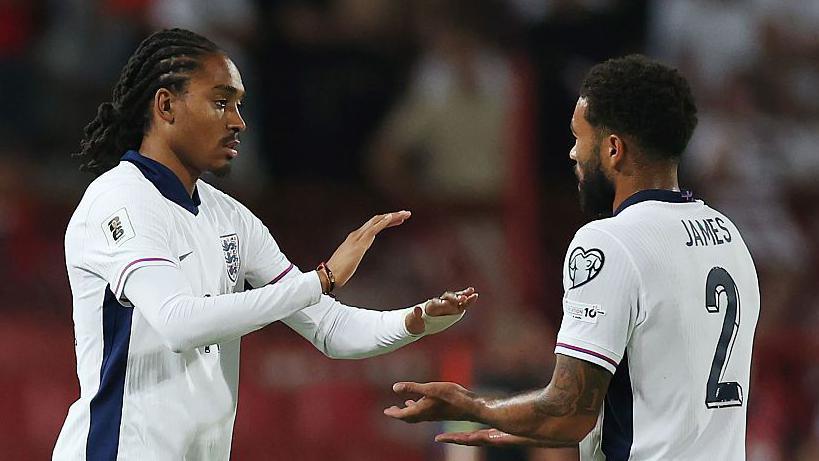Djed Spence made history as the first Muslim to play for England’s senior team, inspiring young Muslims worldwide. His debut highlights the need for greater representation and inclusivity in football, combating Islamophobia and promoting understanding.
Djed Spence's appearance as a substitute for England in their recent World Cup qualifier against Serbia wasn't just a personal triumph; it was a historic moment with profound implications. The 25-year-old Tottenham Hotspur defender became the first Muslim to represent England's senior men's football team, a landmark achievement resonating far beyond the pitch.
"I was surprised because I didn't know I was the first, so it's a blessing," Spence remarked after England's dominant 5-0 victory. "It's good to make history and hopefully inspire young kids around the world that they can make it as well. They can do what I am doing."
Spence's faith is integral to his life and approach to the game, often reflected in his social media posts. "Whatever religion you believe in, just believe in God," he stated. "God is the greatest for me personally and He never lets you down. Days like today are special because of God for me."
The significance of Spence's milestone extends to the wider Muslim community in the UK, offering a powerful symbol of inclusion and representation. Ebadur Rahman, founder of Nujum Sports, an organization supporting Muslim athletes, emphasized, "It's a moment of celebration for British Muslims. Djed has a big responsibility on his shoulders - not only is he playing for England, he is playing for Muslims all around the world because he is now seen as a role model breaking a barrier."
Spence's openness about his faith, both online and on the field, provides young Muslim players with a relatable figure. Yunus Lunat, a grassroots coach and former chair of the Football Association's race equality advisory board, noted, "It is great that he is comfortable visibly professing and celebrating his faith. Every single young Muslim player I've come into contact with through coaching in this country aspires to play for England."
While Nujum Sports estimates around 250 Muslim players in England's professional leagues, few have reached the senior England squad. Zesh Rehman, who played for England up to the under-20 level before representing Pakistan, and Hamza Choudhury, who made appearances for the U21s before choosing Bangladesh, are notable examples.
Considering Muslims constitute 6% of the UK population, their representation in football remains comparatively low. Lunat points out, "We just haven't had the Muslim players coming through. Muslims haven't had enough opportunities or enough role models for young, aspiring players to follow on from. It's not particularly good that it's taken until 2025 for a Muslim to play for England."
Nathan Ellington, who converted to Islam later in his career, shared his experiences, noting that sometimes people in football clubs don't know much about the religion and they just look at it negatively. But then maybe they start to learn and realize 'oh, it's not that different, he just needs this adjustment, this food, time to pray'.
Riz Rehman, Zesh's brother, who works as a player inclusion executive for the Professional Footballers' Association, highlights the importance of supporting Muslim players, discussing how to best support their Muslim players.
Ellington believes Spence's inclusion in the England squad can change perceptions, stating, "It's great to know that it doesn't matter what your background is, or what culture you come from - they have chosen him for the very top level because of what he is doing on the pitch. A lot of Muslims will be proud of him - I am."
Spence's debut arrives at a time when Islamophobia and discrimination are increasing. According to a Tell Mama report, anti-Muslim hate has reached an all-time high, with incidents more than doubling compared to 2023. A 2022 University of Birmingham study revealed that 26% of people in the UK hold negative views towards Muslims.
Rahman concludes, "The last few years in particular have been profoundly difficult for Muslim athletes around the world. So when we get this sort of win, it's important that we all celebrate it... Players should be celebrated for who they are, whether it's Muslim faith, Christian faith or any other."
Spence's achievement serves as a beacon of hope and inspiration, demonstrating the potential for inclusivity and representation in football and beyond.
